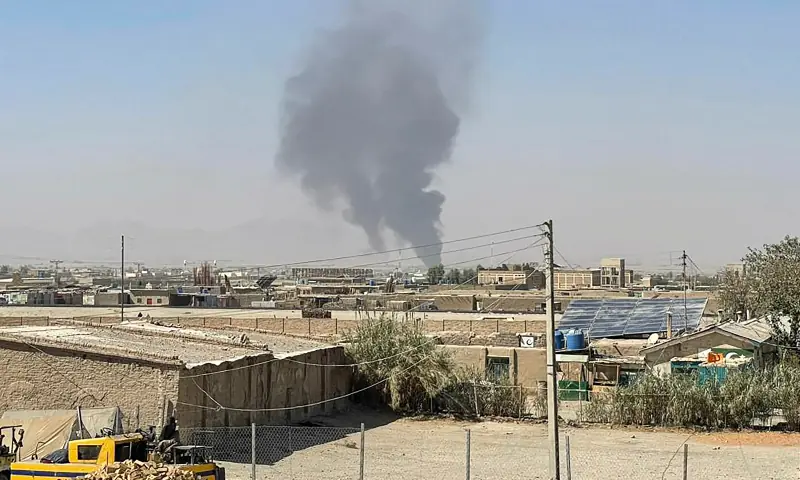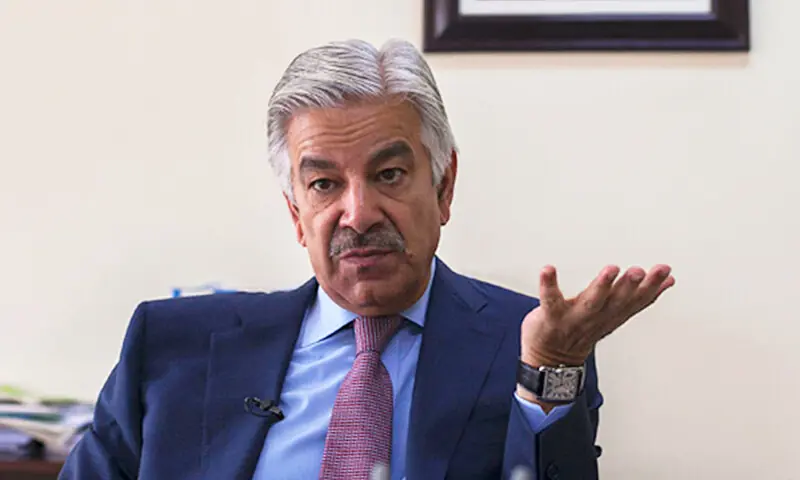WITH at least three major cross-border clashes in a week, there is an urgent need to address the core issues affecting Pakistan-Afghanistan ties and prevent the situation from escalating into a full-blown conflict.
Although a temporary truce was reached on Wednesday and the prime minister indicated yesterday that Islamabad was willing to negotiate if Kabul met certain conditions, fierce fighting had occurred earlier when the Afghan Taliban launched an attack on the Chaman border. Pakistan responded, attacking camps in Kandahar used by TTP terrorists, according to the military. Explosions were also heard in Kabul.
Earlier in the week, there were similar exchanges in Kurram, after the Taliban attacked Pakistani positions on October 11. Before the outbreak of hostilities, explosions were heard in Kabul last week, in which the TTP chief was reportedly attacked. Pakistan has not officially recognized this operation.
While it is necessary to defend the nation against foreign aggression, a long-term conflict against Afghanistan must be avoided. These hostilities occurred at a time when the Afghan Taliban foreign minister was touring India. In a display of diplomatic theater, India, which does not recognize the Kabul regime, warmly welcomed the Taliban delegation.
This is a big change for New Delhi, which had previously demonized the Taliban and financially and diplomatically supported its Afghan rivals. In fact, after the Taliban recaptured Kabul in 2021, Narendra Modi reminded the UN that Afghanistan “must not be used to spread terrorism.” Now that anti-Pakistan terrorists have found refuge in Kabul, India seems to have forgotten these concerns.
Therefore, Pakistan must act wisely. The eastern border is already hot and further adventurism on the part of New Delhi cannot be ruled out. Therefore, a conflict with the Afghan Taliban will only benefit India.
For Pakistan, the best option in these difficult circumstances appears to be to coordinate a response with regional allies, including China. On the one hand, Muslim states, such as Saudi Arabia and Qatar, have played a decisive role in negotiating truces. These channels must be kept open.
Furthermore, in the recent Moscow-format consultations on Afghanistan, in which representatives from Pakistan and Kabul participated, it was stated that Afghan soil cannot be “used as a threat to the security of neighboring countries and beyond.” Pakistan faces a serious threat to its security from TTP terrorists who have found a sanctuary in Afghanistan. The UN has also backed Pakistan’s concerns, saying the Taliban provides the TTP with “logistical and operational space”, while also providing training sites for Al Qaeda.
A regional meeting of states should be organized where Pakistan should present this evidence and the Afghan side should be asked to clarify it. What is beyond doubt is that unless the threat of terrorist groups present in Afghanistan is addressed, the entire region will suffer, not just Pakistan.
Published in Dawn, October 17, 2025








